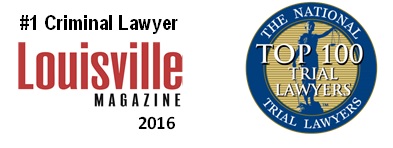In order for evidence to be used in a courtroom, the trial judge must agree that it is “relevant evidence.” To be considered relevant the evidence must have “any tendency” to make the existence of any fact that is of consequence to the determination of a trial more or less probable. This is the ‘relevancy test’. If the evidence does not pass the relevancy test, it is not admissible in trial- end of story. This issue of relevancy is always the first question to ask when considering whether certain evidence can be admitted. Admitted means used in the courtroom. KRE (Kentucky Rule of Evidence) 401 gives the definition of relevant evidence. KRE 402 states that relevant evidence is admissible unless banned by the U.S. Constitution or the Kentucky Constitution or by application of other rules of the KRE. KRE 403 states relevant evidence can be excluded of its value is substantially outweighed by undue prejudice, confusion, delay or misleading the jury or cumulative.
What is prejudicial evidence? Isn’t all evidence prejudicial to the other side? According to Kentucky law, evidence is unfairly prejudiced if it appeals to the jury’s sympathies or arouses a sense of horror with the jury or the evidence provokes the jury’s instinct to punish or the evidence cause the jury to base its decision on something other than the established propositions in the case. KRE 403 offers no protection against evidence that is merely prejudicial in the sense that it is bad or detrimental to the other side.
According to the case of Romans v. Commonwealth, unfair prejudicial evidence is unnecessary and unreasonable. If the trial court overrules your motion to exclude the prosecutor’s evidence because you claim the evidence is not relevant or the evidence is unfairly prejudicial you must federalize your objection on the record by telling the judge admission of this prejudicial evidence will deny you of Federal Due Process. You must also state that your DUE PROCESS objection is based on the U.S. Constitution. In short, a state court evidentiary ruling will be reviewed by a Federal court only if you cite a Federal authority. youy must federalize the objection or you have little chance on winning on appeal.
The best Federal authority is the U.S. Constitution and/or a U.S. Supreme Court case. Every lawyer must know the case of Chambers v. Mississippi. Chambers holds, “A state court may not enforce its rules of evidence in a criminal trial so as to disallow the defendant the right to present reliable exculpatory evidence and thereby deny the defendant a fair trial.” Chambers was charged with murder of a police officer. Chambers insisted he did not shoot the cop. Prior to trial, Gabe McDonald gave a sworn confession that he shot the cop. Chambers called Gabe McDonald to the witness stand and introduced Gabe McDonald’s confession. The prosecution cross-examined Gabe McDonald and Gabe disavowed the confession. Chambers sought to cross-examine Gabe McDonald as an adverse witness. Mississippi law prevented Chambers from “attacking” ,by adversarial cross examination, his own witness.
The US Supreme Court held the right of cross-examination is more than a desirable rule of trial procedure. Cross-examination is implicit in the Constitutional right of Confrontation and assures accuracy of the truth finding process. If the court admits evidence you believe is unfairly prejudiced, you must cite the case Payne v. Tennessee. Payne allowed a victim impact statement in a capital case sentencing hearing. Payne is good for a non capital case in the guilty phase because it addresses the unfairness of admitting unfairly prejudicial evidence. In short, evidence is relevant if it tends to prove or disprove an element of the offense. Evidence that is only slightly probative satisfies KRE 401.
Evidence which tends to show witness bias or interest in the outcome is always relevant and admissible. This rule came from a civil case styled, Primm v. Isaac. Primm was a doctor who did IME’s. The plaintiff sought to impeach Primm with proof of his income tax records for IME income. The Kentucky Supreme Court held: “Proof that tends to expose a motivation is slanted testimony one way or the other satisfies the requirement of relevancy. The interest of a witness is not collateral and may always be proved to allow the jury to estimate credibility.”







